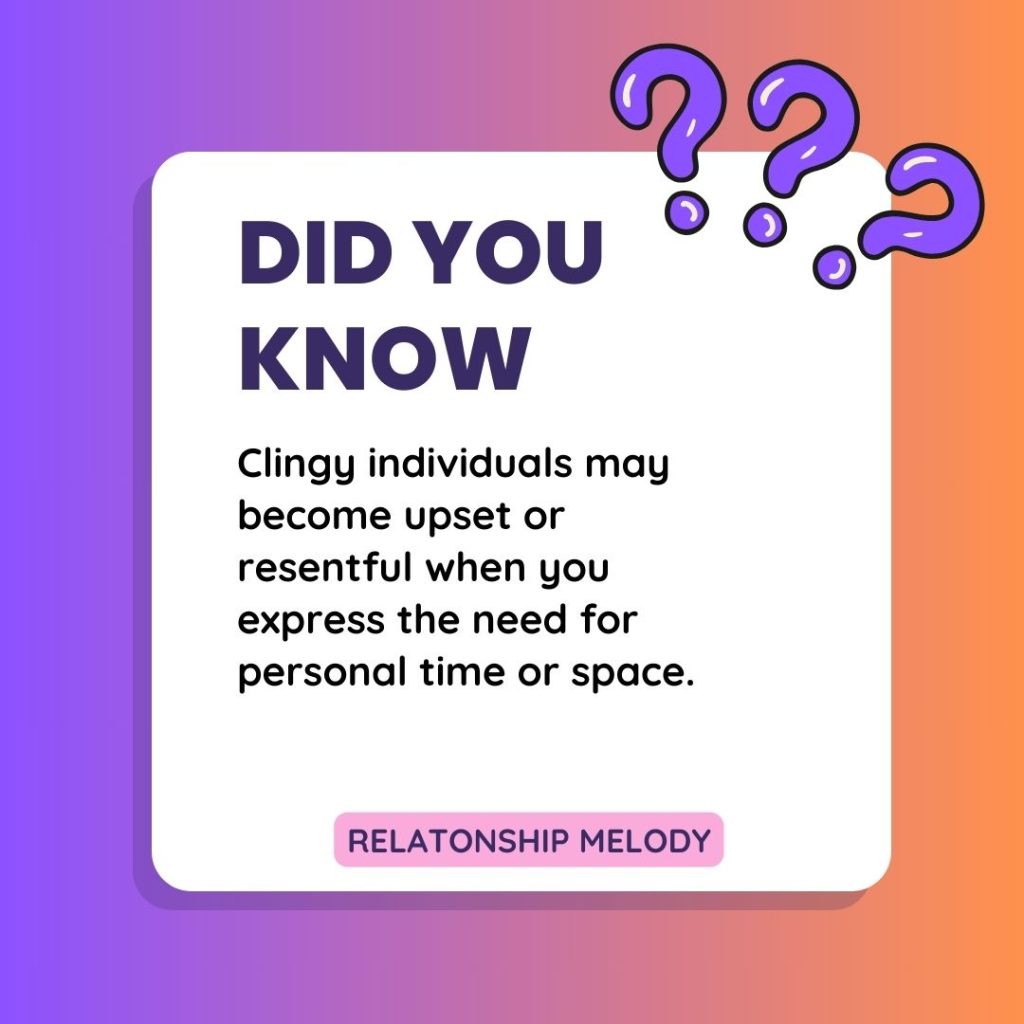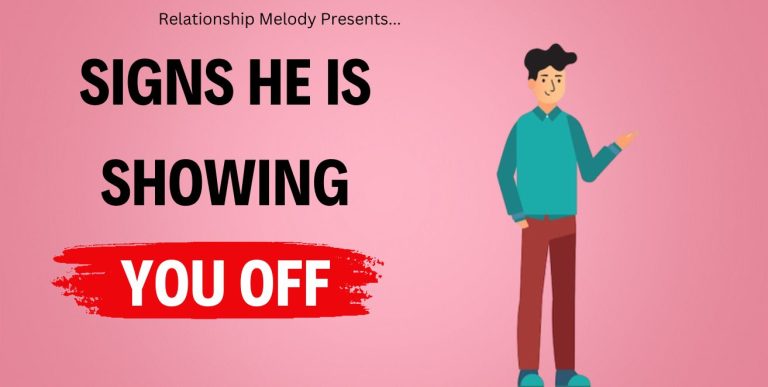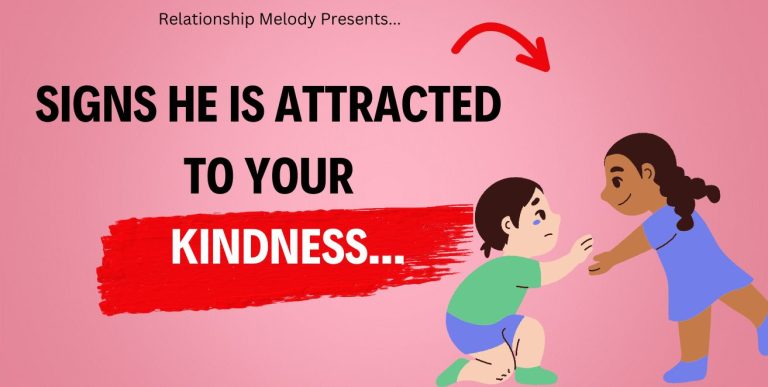25 Signs He Is Too Clingy
In the realm of dating and relationships, finding someone who genuinely cares for you and enjoys spending time with you is undoubtedly a wonderful feeling. However, it’s important to strike a healthy balance between affection and personal space.
Occasionally, individuals may display behaviours that indicate they are overly clingy, which can lead to feelings of suffocation and discomfort in a relationship. In this blog post, we will explore 25 signs that suggest your partner may be crossing the line from affectionate to clingy.
Recognizing these red flags can help you navigate your relationship more effectively and maintain a healthy level of independence.
25 Signs He Is Too Clingy
Here are 25 signs to know.
#1 Constant Need for Attention:
This sign refers to a partner who constantly seeks validation and demands your attention. They may feel insecure or have low self-esteem, requiring constant reassurance from you. This behaviour can be emotionally draining and leave you with little time for yourself or other important relationships.
#2 Excessive Texting and Calling:
If your partner bombards you with an overwhelming number of messages and calls throughout the day, it can be a sign of clinginess.
This behaviour may indicate a fear of being disconnected or a need for constant contact to feel secure. It can make it challenging for you to have personal space or maintain a healthy balance in your life.
#3 Lack of Personal Space:
A clingy partner may exhibit a reluctance to give you space. They may constantly want to be around you or be overly involved in your activities and decisions.
This invasion of personal space can make you feel suffocated and hinder your ability to have alone time or pursue your interests.
#4 Jealousy and Possessiveness:
Clingy individuals often struggle with jealousy and possessiveness. They may feel threatened by your interactions with others, even if they are innocent. This behaviour stems from their fear of losing you and can lead to controlling tendencies and isolation from friends and family.
#5 Overwhelming Emotionality:
Someone who is excessively clingy may rely heavily on you for emotional support. They may struggle to regulate their own emotions and constantly seek validation and comfort from you. This can put a significant emotional burden on you and make you feel responsible for their happiness.
#6 Monitoring Your Social Media:
Clingy partners may constantly monitor your online activity, liking and commenting on every post. This behaviour can indicate a lack of trust and a need to constantly keep tabs on your life. It can make you feel scrutinized and trapped, affecting your freedom and privacy.
#7 Disregard for Boundaries:
A clingy partner may consistently cross your established boundaries. They may ignore your need for personal space, disregard your requests, or invade your privacy. This lack of respect for your boundaries can lead to feelings of resentment and discomfort in the relationship.
#8 Insecurity About Other Relationships:
Clingy individuals often feel insecure about their relationships with friends or family. They may attempt to isolate you from your loved ones, creating a dependency on them for all emotional support and companionship. This can lead to a sense of isolation and strain your other relationships.
#9 Reluctance to Make Independent Decisions:
A clingy partner may consistently rely on you for even minor decisions. They may lack confidence and autonomy, always seeking your approval or guidance. This can create an imbalance in the relationship dynamics and hinder their personal growth.
#10 Overbearing Affection:
Excessive displays of affection can be a sign of clinginess. While affection is important in a relationship, when it becomes overwhelming and suffocating, it can indicate a lack of boundaries and personal space. It is crucial to have a healthy balance between affection and independence.
#11 Need for Constant Reassurance:
A clingy partner may constantly seek reassurance and validation from you. They may doubt your feelings towards them and require constant confirmation of your love and commitment. This can be emotionally exhausting and put pressure on you to constantly prove your affection.
#12 Unwillingness to Give You Space:
Clingy individuals may become upset or resentful when you express the need for personal time or space.

They may struggle to understand your desire for independence and may interpret it as a sign of rejection. This can lead to conflicts and feelings of suffocation within the relationship.
#13 Controlling Behavior:
Clingy partners may exhibit controlling tendencies, wanting to dictate various aspects of your life. They may try to control your appearance, choices, or activities out of fear of losing you.
This behaviour is a red flag for an unhealthy power dynamic and a lack of respect for your autonomy.
#14 Extreme Jealousy of Others:
Excessive jealousy towards your interactions with others, even if they are innocent, is a common sign of clinginess.
A clingy partner may feel threatened by your friendships or professional relationships and express unfounded jealousy. This behaviour can strain your social connections and create a toxic environment.
#15 Reliance on You for Happiness:
Clingy individuals may rely heavily on you for their happiness and emotional well-being. They may expect you to fulfil all their needs and neglect self-care and individual sources of happiness.
This can lead to unhealthy codependency and a burden on your shoulders to constantly make them happy.
#16 Difficulty Handling Time Apart:
A clingy partner may struggle to cope with even short periods spent apart. They may become anxious or distressed when you’re not physically present, yearning for constant togetherness.
This behaviour can hinder personal growth and prevent both individuals from nurturing individual interests and hobbies.
#17 Invasion of Personal Privacy:
Clingy individuals may invade your privacy by snooping through your personal belongings without your consent.
They may read your messages, emails, or personal diaries to satisfy their need for control or reassurance. This breach of trust and lack of respect for personal boundaries can be deeply unsettling.
#18 Constant Monitoring of Your Whereabouts:
A clingy partner may insist on knowing your exact location at all times. They may constantly question your movements or demand constant updates on your whereabouts. This behaviour indicates a lack of trust and can make you feel suffocated and controlled.
#19Lack of Individual Interests:
Clingy individuals may lack independent hobbies or interests, constantly seeking to be involved in their activities. They may struggle to find fulfilment outside of the relationship, relying solely on you for entertainment and companionship. This can hinder personal growth and create an unhealthy dependency.
#20 Overreacting to Minor Issues:
Clingy partners may blow minor disagreements or misunderstandings out of proportion. They may become overly dramatic or emotional, causing unnecessary stress and conflicts within the relationship. This hypersensitivity can make communication challenging and create an unstable environment.
#21 Neglecting Personal Goals:
A clingy partner may disregard their aspirations and redirect their focus solely on the relationship. They may sacrifice personal growth and put their dreams on hold, prioritizing the relationship above all else. This can lead to resentment and hinder both individuals’ overall fulfilment.
#22 Becoming Your Shadow:
Clingy individuals may consistently follow you around, always being physically present. They may struggle to give you space or engage in independent activities, resulting in a lack of personal freedom and individuality. This constant presence can feel suffocating and restrict your ability to thrive independently.
#23 Difficulty Accepting Your Independence:
A clingy partner may find it challenging to accept and support your personal growth and independence.
They may feel threatened by your desire for autonomy and attempt to hold you back from pursuing your goals. This lack of support can create tension and hinder the development of a healthy relationship.
#24 Overstepping Boundaries with Friends and Family:
Clingy individuals may invade the boundaries of your friends and family. They may overstep their roles or boundaries, becoming overly involved or possessive of their loved ones. This can strain your relationships and create a sense of unease within your social circle.
#25 Reluctance to Spend Time Apart:
Finally, a clingy partner may be reluctant to spend time apart, even when it may be healthy and beneficial for both individuals.
They may fear losing you or struggle with loneliness, leading to a constant desire for togetherness. This can hinder personal growth and prevent you from nurturing other important relationships and interests.
Read more: Signs He Is Toying With Your Emotions.
Conclusion:
Recognizing signs of clinginess in a partner is crucial for maintaining a healthy and balanced relationship. While affection and closeness are desirable, an excessive need for attention, constant monitoring, and a lack of personal space can lead to feelings of suffocation and hinder personal growth.
It is essential to communicate your needs and boundaries with your partner, fostering open dialogue and mutual understanding. Remember, a healthy relationship allows for individuality and respect for personal space, while still cherishing shared moments.
By identifying these 25 signs of clinginess, you can take the necessary steps to address the issue and work towards building a more balanced and fulfilling relationship.
Liked Our Article?
Our Patreon link: https://www.patreon.com/RelationshipMelody

Welcome to Relationship Melody! Our website is dedicated to all things on relationships, dating, and love! We are passionate about helping you navigate the ups and downs of love, and our goal is to provide you with valuable insights and information that will make your journey toward a fulfilling relationship smoother and more enjoyable.







